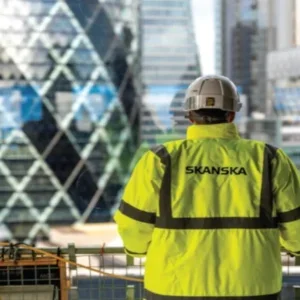
Though it feels like a distinctly modern concept, sustainability has had a surprisingly long history; in 1713, a German forestry book called Nachhaltigkeit – meaning ‘sustainability’ – warned woodsmen to never harvest more than a forest can regrow. A century later, the term had entered the English language and a century after that, it had taken on its modern sense of general environmental protection. As the UN’s Brundtland Report noted back in 1987, “sustainable development is development that meets the needs of the present, without compromising the ability of future generations to meet their own needs”.
An admirable idea – but it has only really been the past ten years that sustainability has started gripping boardrooms and shareholders the world over, something clear from the statistics.
According to research by the IMD Global Board Centre, 62% of executives consider sustainability a vital part of their business, with another 22% convinced its importance will only increase in future. And one only has to glance at the news to understand why this is happening. With global temperatures rising, forest fires ravaging woodlands from Arizona to Greece, and the North Pole ice sheet melting 20% faster than it did in the 1980s, anyone can appreciate why business leaders are so keen to go green.
To be fair, none of this is entirely altruistic. From good publicity to sharpened efficiency, there are plenty of business reasons to promote sustainability. In fact, look to the most successful multinationals and it becomes clear they actually balance going green with staying in the black, protecting the planet while preserving their profits. And though there are obviously bumps and knocks along the way, why would they not? In a world where 88% of business school students want to learn about social and environmental issues – and 67% want to incorporate environmental sustainability into their careers – the future seems sustainable whether people like it or not.
Unsustainable risks
Before the pandemic began in Wuhan, China, in 2019, few had ever heard of coronavirus. Now it is on the lips of every policymaker and business executive on earth, with directors from London to Tokyo frantically experimenting with Zoom and working from home. That risks undermining broader commitments to sustainability – commitments that were fragile enough before the pandemic struck. “Without a healthy planet we can’t have healthy businesses – it’s as simple as that,” says Graeme Pitkethly, chief financial officer at Unilever. “The pressure on the planet, and its associated social inequality, is getting worse. This is being made even more severe by the devastating pandemic we’re living through.”
A pity, then, that so many multinationals find corporate sustainability such a challenge, something that arguably begins with corporate leaders themselves. Though young people are increasingly environmentally conscious, their superiors up the chain may not be comfortable cutting carbon emissions or replanting forests, especially if that unbalances company finances. Though a 2018 report by the Global Commission on the Economy and Climate (GCEC) found that people could collectively save $26trn by 2030 if they take sustainability seriously, that first requires substantial investment.
The amount required is really remarkable. The GCEC argues that companies and countries will need to invest $90trn in sustainable infrastructure, with another $1.5bn per year set aside for clean water supplies. And that is just the start – from reforestation to land redevelopment, the figures needed to truly promote sustainability are fantastical. And if that is not enough to give corporate accountants a collective aneurysm, an inability to trace how successfully all that money is being used is another barrier to change. Unlike regular bottom lines – the number of products sold or customers added – calculating how much an investment actually boosted the fight against climate change is very tricky.
At worst, well-meaning companies can fire money at the problem without ever seeing genuine returns on their investments. Like corporate sustainability in general, personnel are often a problem. If 65% of respondents in one poll claimed that getting senior leadership on-board was their biggest sustainability challenge, 47% found it hard to convince their colleagues and employees. And even if environmentalists succeed in cajoling people inside the office, their customers are another story. After all, though nearly two thirds of people claim they want to buy green, cost and convenience means that only 26% of them actually make the leap at the supermarket. This speaks to the limitations of what businesses can do more broadly. According to Unilever, almost 70% of its greenhouse gas footprint depends on which products people choose and whether they use them sustainably. To put it another way, Unilever can create the best low-water detergent ever made – but if families use more than they need, they are never going to cut their use.
A good climate
In early 2020, right as coronavirus was pounding US cities and stealing its citizens’ lives, Unilever announced an ambitious new plan to fight “a far greater and ever-present threat to people and the planet: the climate and nature crisis”. For some companies, that might feel glib or even cruel – worrying about climate change is all well and good, but is the middle of an awful pandemic really the time to show your green credentials? But do the research on what Unilever has done over the years, and one might be more forgiving.
46%
Unilever’s 26 most sustainable brands’ growth compared with the rest of the business, accounting for 70% of company turnover.
172,000
Staff that were given the chance to say what sustainability meant for them in 2019, with over 40,000 actually taking part.
65%
CO2 emissions per tonne of production decrease since 2008.
Unilever
“Sustainable development is development that meets the needs of the present, without compromising the ability of future generations to meet their own needs.”
The UN’s Brundtland Report
Unlike many multinationals, the company seems to actually take corporate sustainability seriously, establishing a Sustainable Living Plan (SLP) as far back as 2010. “Globalisation and capitalism are not bad,” per se, explains Pitkethly. “They can be powerful forces for good – but this doesn’t happen automatically, and globalisation and capitalism at the expense of people and the planet isn’t a winning formula.”
$26trn
Amount people could save by 2030 if they take sustainability seriously.
Global Commission on the Economy and Climate
62%
Executives that consider sustainability a vital part of their business, with another 22% convinced its importance will only increase.
IMD Global Board Center

If nothing else, Unilever makes this clear from the scale of its ambitions. The May 2020 programme promises everything from a deforestation-free supply chain by 2023 to totally zero-emission products by 2039. Protecting vulnerable peatlands and rainforests is another target – Unilever already claims that 89% of its ‘forest-related’ commodities are sourced sustainably. This is bolstered by a regenerative agriculture code for all its suppliers, helping them protect soil and animal diversity through training and financial packages.
An exhaustive package in other words – and this is before one even looks at what the London-based company plans for water. Implementing 100 water stewardship programmes in “water-stressed areas” from India to South Africa, the company hopes to help many of the 2.1 billion people without access to a clean supply.
The number of proposals on the Unilever website is overwhelming, but what does it mean in practice? In answering that question, while solving the problem of how climate activism can be measured, Unilever offers its latest SLP. Rather than handing out money like sweets, it targets cash precisely and carefully measures its impact. The report shows that its “waste impact per consumer use” has reduced by around 32% since 2010, or that its CO2 emissions per tonne of production have been cut by 65% since 2008. Nor is Unilever alone in this. Companies from Nestlé to Danone release similar reports, while the Valuing Natural Capital (VNC) initiative brings together corporations from Coca-Cola to Dow Chemicals, and helps them develop a methodology to assign value to forests, fresh water and marine systems.
These successes would probably be impossible without the support of staff up and down the company, and there is the sense that Unilever has cracked the puzzle that often stumps sustainability officers. For instance, it sends new marketers on a week-long sustainability course. In 2019, all 172,000 staff were given a chance to say what sustainability meant for them, with over 40,000 taking part. “Our staff are very engaged,” says Pitkethly. “They are some of our most powerful advocates and activists.” No wonder CDP, a non-profit global environmental disclosure platform, awarded Unilever top marks across all three categories measured, a distinction shared only by one other company.
Invest in the future
If all this helped the planet, it would probably be enough. As it is, Unilever is able to balance deep corporate sustainability with robust profits. “Not only are our sustainability efforts promoting system change, they help to drive trust in our business and our brands,” says Pitkethly. That starts with advertising. By dovetailing its sustainable products with environmentally conscious campaigns – while keeping prices low for people in developing countries – its brands are exploding. Lifebuoy soap, for example, is used to encourage basic sanitation everywhere from Zambia to Vietnam – a plan that could save the lives of 600,000 children each year.
By introducing an affordable cleaning powder to India, Domestos toilet cleaner supports people living on a low income in the subcontinent. In 2018, Unilever announced that its 26 most sustainable brands grew 46% faster than the rest of the business and accounted for 70% of company turnover. And if sustainability is a rising market force generally, Pitkethly argues that the coronavirus makes it even more important in light of the pandemic and its consequences. “Imagine most consumers right now,” he says. “They’re in the supermarket, mask on, kids in-tow, worried about vulnerable friends and family, hyper-conscious of the cash they have to spend each month – if that consumer doesn’t trust our brands or the company behind them, they will go elsewhere.”
Sustainability helps companies like Unilever in the long term too. The Business and Sustainable Development Commission – co-founded by Unilever – suggests that sustainable development creates market opportunities of at least $12trn a year. To put it another way, boosting the opportunities of less developed countries may one day create new mass markets that already exist in the UK and US. And given everything they’ve done so far, Pitkethly probably has good reasons to imagine these new markets will stay loyal too – if Unilever and other enterprising firms can stop our planet from burning before that.






